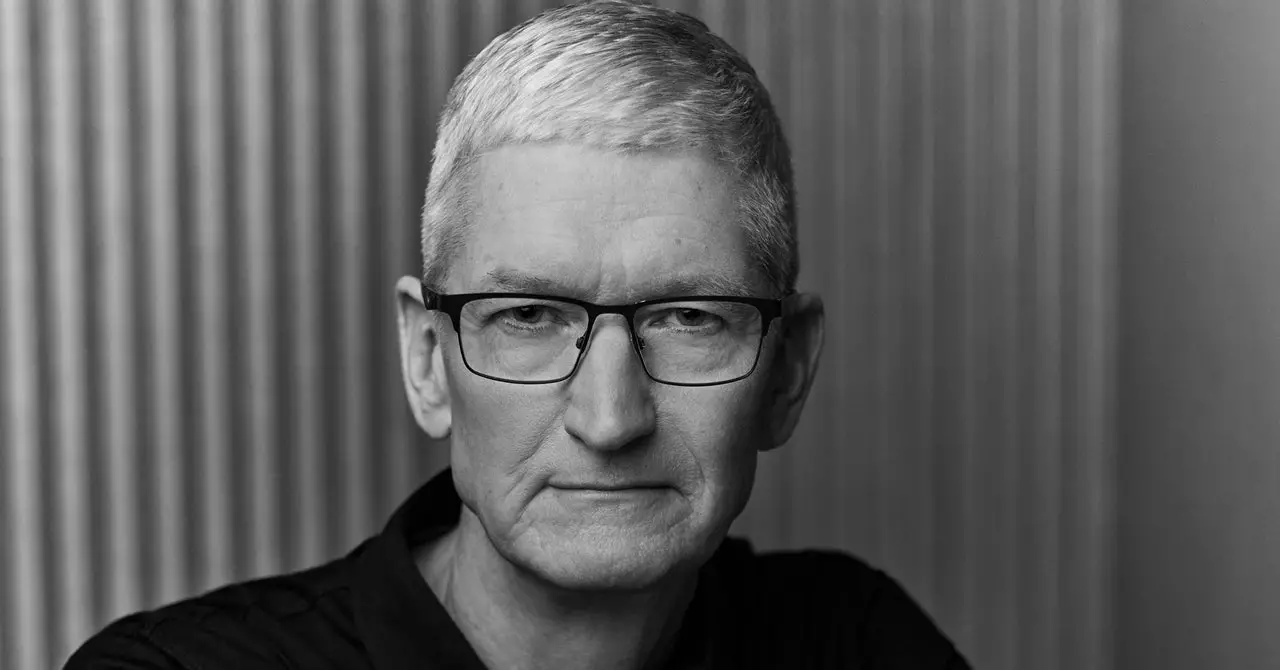Walking through the iconic Apple Park campus, memories of an earlier visit flood my mind. At that time, the building was a work-in-progress, embodying potential amidst the dust and muddiness left by active construction. My guide was none other than Tim Cook, the CEO of Apple Inc., who took on the role of both curator and storyteller as he navigated me through the sprawling $5 billion circular masterpiece. With a sense of authority, he remarked that this wasn’t merely the unveiling of a workspace but rather a “100-year decision.” Now, with Apple Park buzzing seven years post-inauguration, I find myself back in the midst of this architectural marvel, brimming with anticipation to engage in dialogue with Cook once more.
The tech industry is experiencing a pivotal juncture. Companies are now confronted with the challenge of either solidifying their future in the digital landscape or faltering under competitive pressure. Our discussion will revolve around a critical initiative: the anticipated unveiling of Apple Intelligence, a potent new entry for Apple into the competitive generative AI sector. This move is anticipated by some as long overdue, particularly when juxtaposed with the flurry of excitement surrounding competing technology firms that have already captured attention with their advanced AI solutions and impressive chatbots.
The Race for AI Relevance
As the industry watches closely, the spotlight remains firmly on Apple. Major competitors have stayed in the limelight with captivating narratives centered on their AI innovations, while Apple’s focus has seemingly shifted towards showcasing an extravagant augmented reality headset. In this environment where new capabilities can easily become outdated, the pressure is on for Apple to execute its AI strategy with precision. Yet, Tim Cook remains composed, a trait reminiscent of his predecessor, Steve Jobs. Cook doesn’t subscribe to the idea that being first is synonymous with being the best. He refers to this as “Classic Apple,” suggesting that the company often enters bustling markets not as trailblazers but as meticulous innovators who refine existing ideas to make them user-friendly and appealing.
To illustrate this philosophy, one can recall the introduction of the iPod. It wasn’t the initial digital music device to hit the market, yet its innovative design and seamless integration with online services transformed how consumers engaged with music. Cook points out that Apple has been laying the groundwork for its foray into AI for several years, including the strategic recruitment of John Giannandrea from Google back in 2018. Giannandrea, a pivotal figure in the AI domain, has augmented Apple’s leadership team and enabled the integration of machine-learning features across their product line.
The announcement in June heralded a new era for Apple’s offerings—with AI woven intricately into their products. Cook confirmed a partnership with OpenAI, a collaborative effort that would make ChatGPT accessible to Apple users. Exciting prospects emerged during demos I attended, showcasing innovative AI capabilities like creating custom emojis and generating images through simple verbal requests, all while renewing the functionality of Siri.
However, what purportedly sets Apple’s AI initiatives apart is the emphasis on consumer privacy. Under Cook’s stewardship, Apple has maintained a reputation for strong data privacy practices. Instead of processing data in the cloud, many of the upcoming AI features will operate directly on devices. Complicated tasks will still leverage secure data centers, alleviating concerns about data exposure while delivering robust performance.
Revisiting the Ring also highlights Cook’s adeptness in celebrating his decisions while artfully sidestepping conversations about those initiatives that may not have yielded the desired outcomes—a notable example being the quiet dissolution of the ambitious smart-car project. Our meeting room dynamic reflects his approach: a blend of Southern cordiality and tightly managed enthusiasm, where he tactfully praises Apple’s latest endeavors while critiquing the competition’s missteps.
Unlike the confrontational style exhibited by Steve Jobs, Cook adopts a more subtle method of persuasion and dialogue. He envelops discussions in a kind of gentle positivity, carefully choosing his words while deftly navigating sensitive topics. Even in the wake of recent election outcomes, he politely refrains from sharing personal viewpoints, showcasing a brand of diplomacy often inherent in corporate leadership.
Ultimately, the true test of Apple’s efforts lies in consumers’ reception of Apple Intelligence. As someone who has reported on Apple for decades, I offer this insight: regardless of the outcome, one can expect Cook to frame subsequent iterations of Apple Intelligence with optimism and enthusiasm—a hallmark of his leadership style. While the pressures mounting on him are palpable, Tim Cook’s composed demeanor belies the weight of responsibility he shoulders. As we stand on the precipice of a new chapter for Apple, one can only watch closely how this storied company reinvents itself once more within the sprawling landscape of artificial intelligence.

